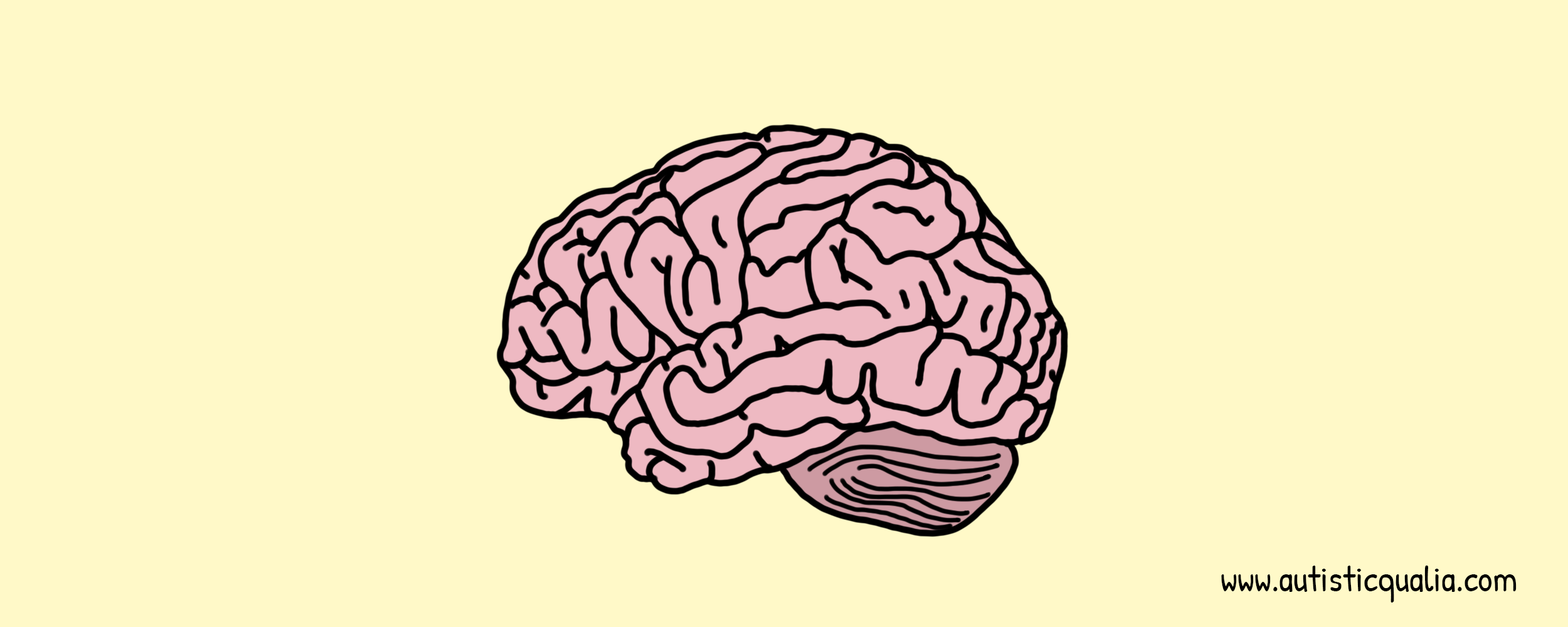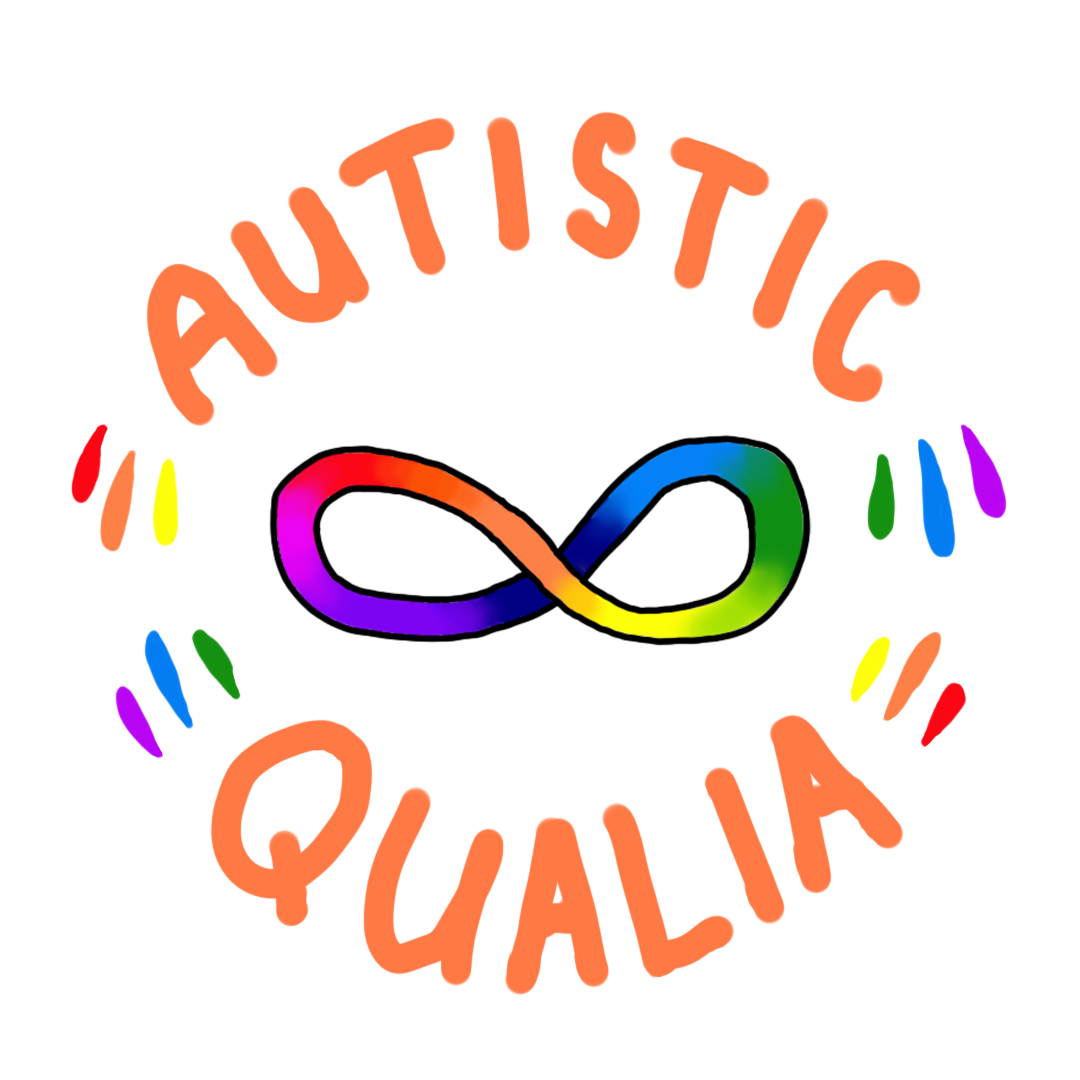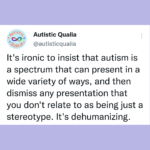
Accessibility of a professional autism diagnosis
Many people in the autistic community are self-diagnosed due to a lack of access to a professional evaluation. Reasons may include high costs and long wait times. In addition, due to the stereotypes of autism and bias in autism research, many autistic girls, marginalized genders, and BIPOC are missed by professionals.
For example, I have been quoted up to $4000 CAD for an autism assessment in Canada. This is not affordable to most people.
Lack of autism expertise among professionals
While it’s true that people who self-diagnose may come to an incorrect conclusion, professionals are prone to the same mistakes.
People who are against self-diagnosis will argue that professionals are more likely to be accurate because they have been educated on autism.
The problem with this argument is that this is not necessarily true. In Canada, general practitioners, psychologists, and psychiatrists are able to make diagnoses of psychiatric conditions, yet few are trained in depth on specific psychiatric conditions.
What percentage of the professionals who are able to give or withhold diagnoses are trained specifically on autism? How many of these professionals conduct research on autism? How many hours of education did they receive on autism? While I don’t know the exact answers to these questions, I highly doubt that the average general practitioner or mental health professional has studied autism in depth enough to be able to accurately diagnose autism better than the average self-diagnosed autistic person.
To be able to claim that professionals are better able to diagnose autism, you would need to first conduct a scientific study comparing the accuracy of the average GP / mental health professional in diagnosing autism vs the accuracy of the average self-diagnosed autistic. Their evaluations would have to be compared against the diagnostic criteria of autism using a scientifically validated assessment questionnaire or reviewed by the few professionals that actually specialize in autism diagnoses.
As far as I know, such a study comparing the accuracy between the two groups does not currently exist. Therefore, the claim that the average GP / mental health professional is better at identifying autism than the average self-diagnosed autistic is invalid and not backed by scientific evidence.
Self-diagnosis can be well researched
On the other hand, self-diagnosed autistic people may have spent dozens or even hundreds of hours educating themselves on autism and spending time in autistic communities. I know I have. Coupled with my formal education in psychology and scientific methods, I have more confidence in my ability to recognize how autism can present than my confidence in the average GP / mental health professional.
I self-identify as autistic. While I’m currently waiting to be “professionally” evaluated, I see my self-diagnosis as just as valid as any “professional” diagnosis because of how much thought and research I have done. I self-diagnosed my depression, generalized anxiety, OCD, and ADHD years before they were formally diagnosed. For me, autism will likely be another self-diagnosis to add to the list of diagnoses that were eventually professionally validated (note that the above diagnoses including autism are common comorbidities).
This doesn’t mean that all self-diagnoses are valid. How valid a self-diagnosis is depends on how much research the person has done on the topic, where they sought their information, whether they ruled out other possible causes, etc. The same goes for professional diagnoses.
Considering how inaccessible and biased professional evaluations are, self-diagnosis (or self-identification) of autism can be a useful tool for understanding yourself and finding a community that understands you.




Hi!
I found your blog via Instagram (have been following you there for a few weeks). I’m actually in the process of being diagnosed by an autistic psychologist in Canada. I went through many years of…”maybe I’m autistic, but does it matter?”…and then recently “Am I autistic??? I think I’m autistic? But what if I’m wrong????”
I decided I’d rather live with all the imposter syndrome than risk being told by someone ignorant that I’m not autistic. And then I ended up finding the website of the autistic psychologist. I thought it would be very cool to be diagnosed by someone actually autistic. Although it was also kind of terrifying, because if she had said I wasn’t autistic, it would be really hard to argue with that.
I love your thought-processes…the conclusion that if you were able to diagnose other conditions that were validated by professionals, it’s likely the same is likely to happen with autism…if you find a decent professional.
I’m also seeking/hoping for diagnosis for OCD and ADHD….maybe anxiety. I know some people would say “Why would you WANT OCD and anxiety”. But really. I’ve been living with it for a long time. It’s more about wanting a label for what I already have.